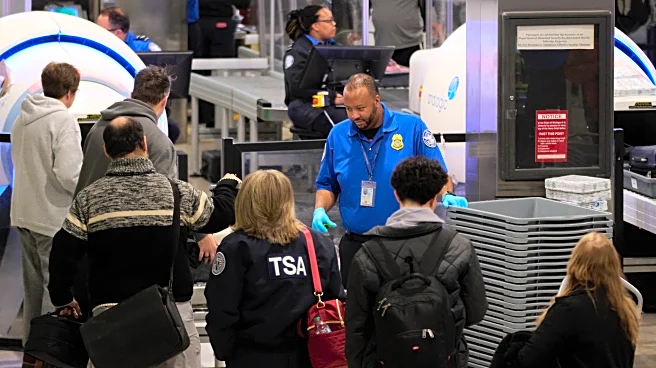Rapid Read • 7 min read
California's Senate Bill 442, aimed at regulating self-checkout stations in grocery stores, has passed the state Senate and is causing concern among industry representatives. The bill, authored by State Senator Lola Smallwood-Cuevas, seeks to improve working conditions by requiring dedicated staffing at self-checkout stations and maintaining manual checkout options. It also limits self-checkout purchases to 15 items. While the bill is intended to protect consumers and workers, grocers warn it could lead to higher prices due to increased operational costs. The California Grocers Association argues that the bill's requirements would necessitate hiring more staff, impacting profit margins and consumer prices. As a compromise, grocers suggest allowing alcohol sales through self-checkout, a practice currently banned in California. However, Smallwood-Cuevas opposes this, citing risks to communities.
AD
The proposed legislation could significantly impact grocery store operations and consumer prices in California. By mandating additional staffing and limiting self-checkout usage, the bill may increase operational costs for grocers, potentially leading to higher prices for consumers. This development is crucial as California already has some of the highest grocery prices in the nation. The debate over self-checkout regulations also highlights broader issues of labor rights and consumer convenience. If passed, the bill could set a precedent for other states considering similar measures, affecting the retail industry's approach to automation and staffing.
The bill's progression through the legislative process will be closely watched by industry stakeholders and consumers. Grocers may continue to lobby for amendments, such as the inclusion of alcohol sales at self-checkout, to mitigate potential cost increases. The outcome of this legislation could influence future policies on self-checkout regulations and labor practices in retail. Additionally, consumer advocacy groups may weigh in on the debate, emphasizing the need for balance between worker protection and consumer convenience.
AD
More Stories You Might Enjoy













